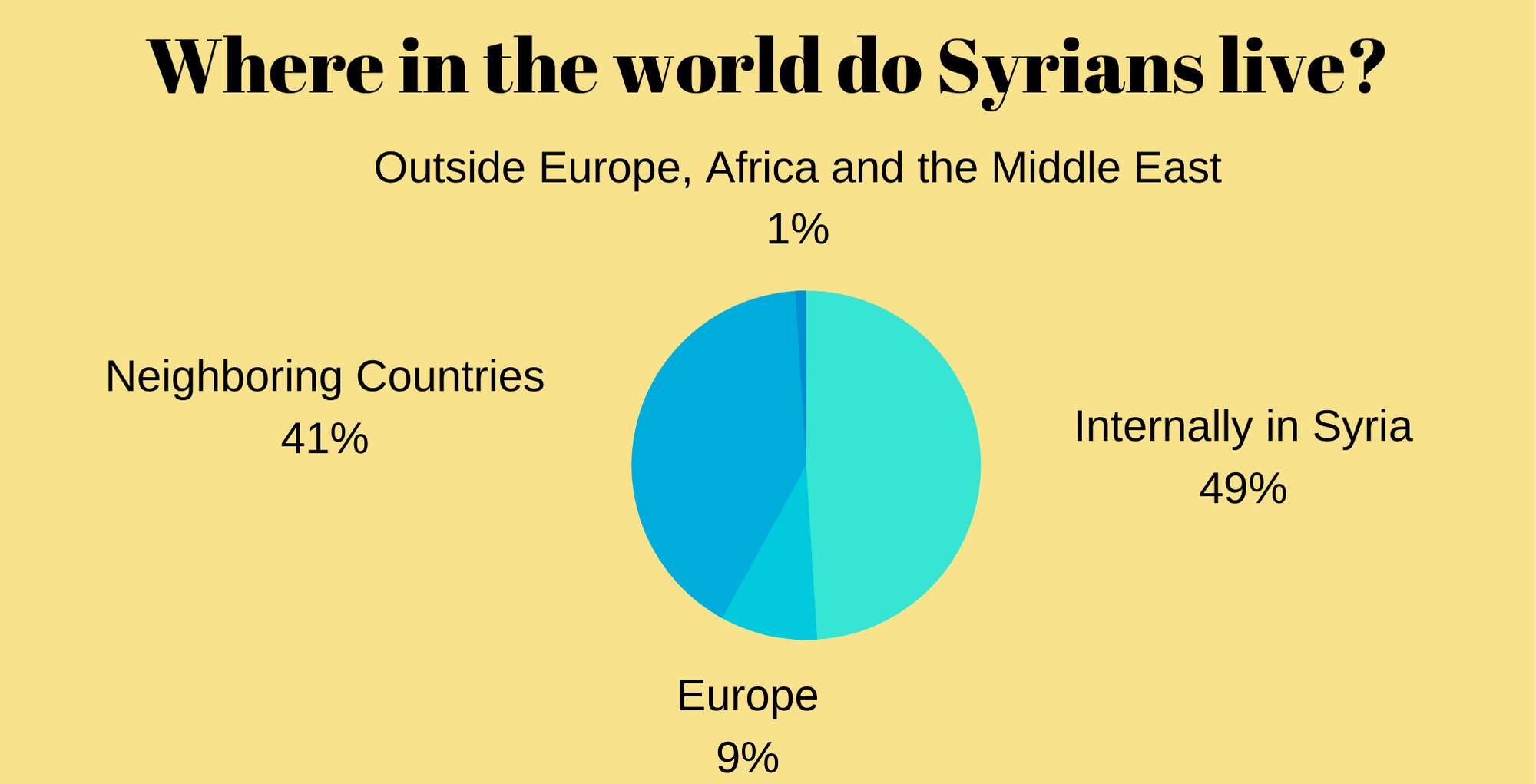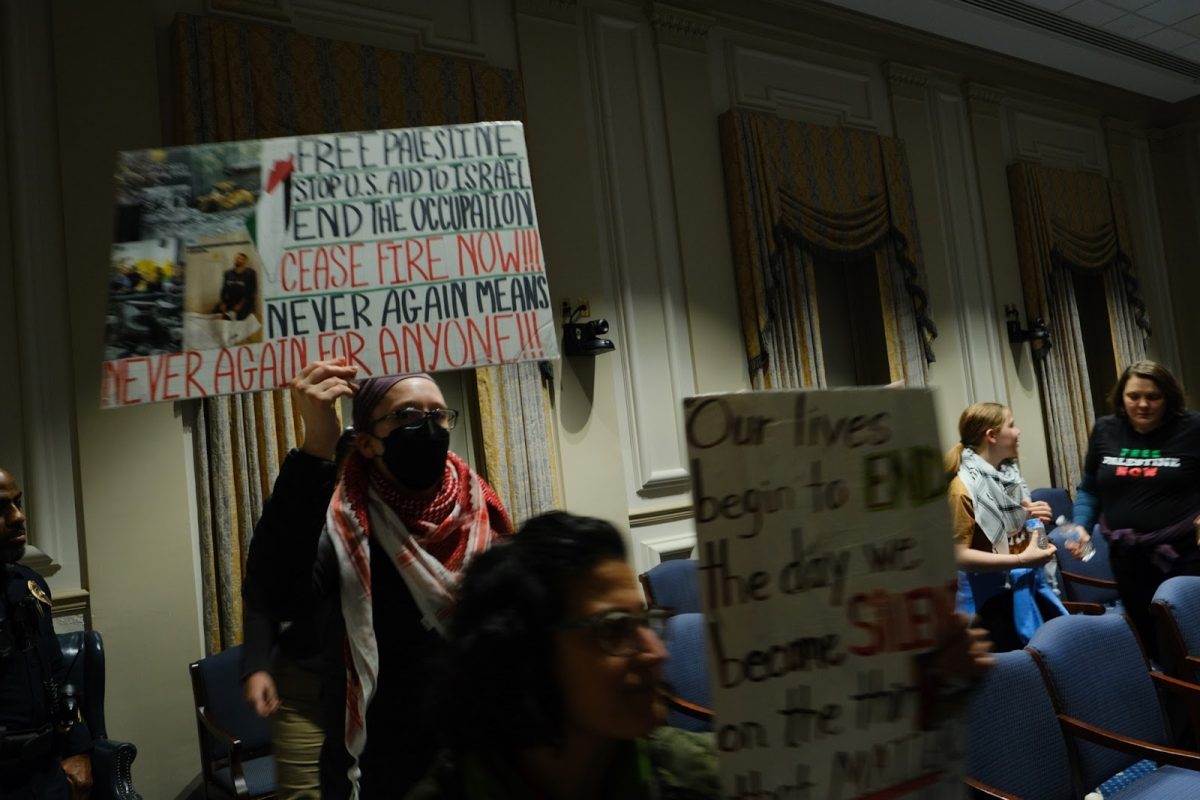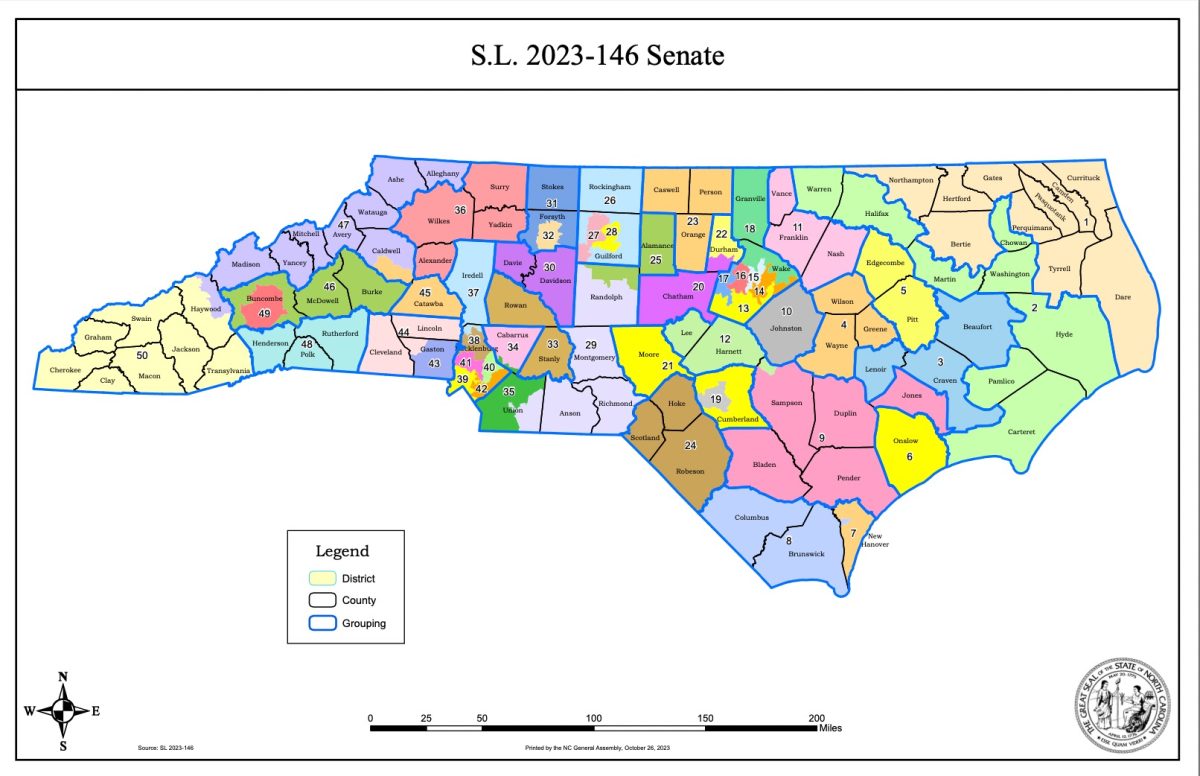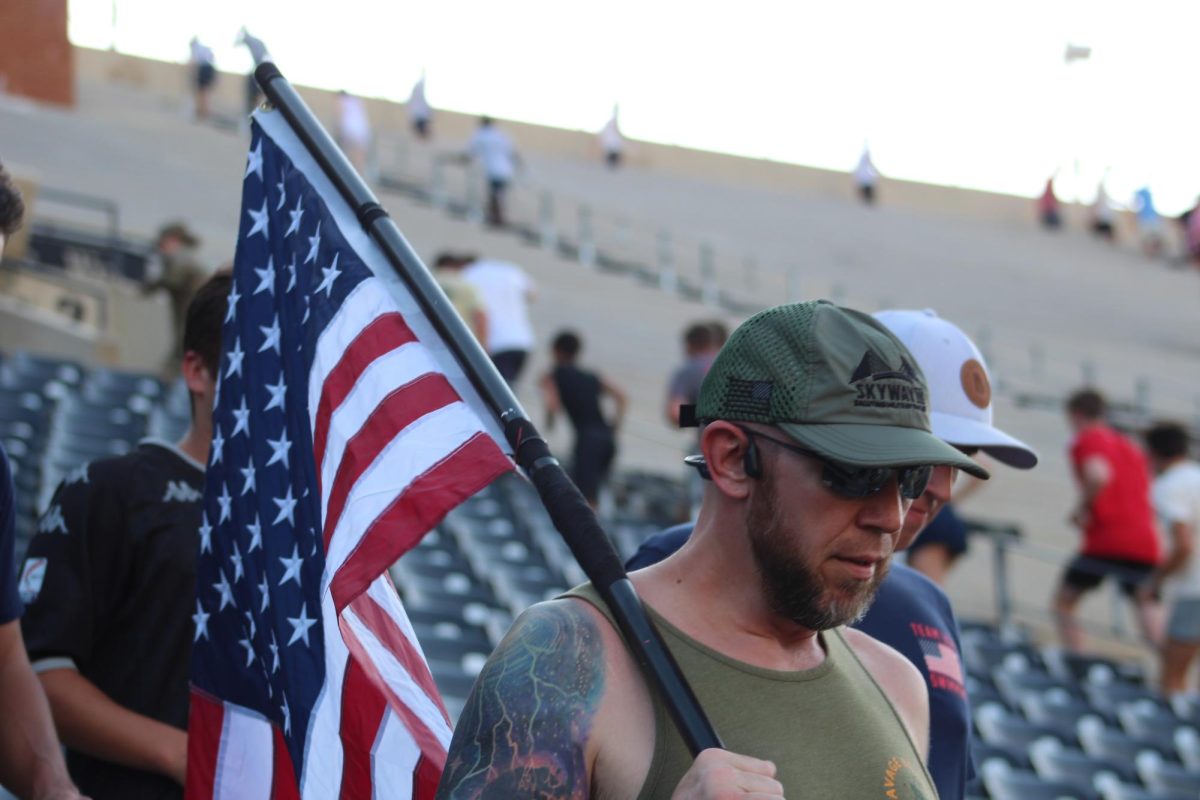The names of the family members have been changed to protect their identities.
Upon entering the home of the Antoun family, it appears as though nobody lives there — at least not permanently. There is one couch, one floor lamp, and a quaint kitchen with few appliances. The white walls are covered with dirty handprints and the wood floors are characterized by training bicycle skid marks from the training bicycle that the boys ride around the house. No pictures, no artwork, no character. Even with five kids, there isn’t a toy out of place — but that’s only because they have none.
Every material or aesthetically pleasing item that the Antoun family claimed ownership of was left behind. This house, which has been their residence for over two years, does not look like a home, because to them, it still doesn’t feel like one.
Yara Antoun and her husband immigrated to Winston-Salem in 2017, in search of a better life for their five children than that which they were born into. Their home city, Daraa, Syria, was plagued primarily by protests that then escalated to civil warfare. The Syrian Army began its attack on Daraa in February of 2012, and by the time the Antoun family was granted entry to the United States, there was nothing left of the place they once considered home.
According to the Triad City Beat, in 2015, about 1,000 Syrian refugees settled in the Piedmont Triad area. With organizations like Wake Forest University’s Student Association for the Advancement of Refugees (SAFAR) aiming to help them integrate, it is perceived that upon arrival to the United States their troubles would end. But based on the continued struggles of the Antoun family, that is hardly the case.
“Nothing [has] been easy,” Yara Antoun said. “Five children does not make it any simpler.”
Her five sons are all between the ages of 5 and 11. They don’t see themselves as refugees, but merely travelers who have adventured through Syria and then Jordan and now the United States.
“How do you speak Arabic?!” 7-year-old Yousef asked me as he bounced up and down on the living room couch, his thrifted white polo covered in dirt. “Only me and my brothers can speak Arabic! Nobody else in school knows what we’re saying.”
Regardless of how the boys view themselves, integration has become a significant challenge for immigrants in the United States today. The current political climate has clouded the inclusive melting pot it once projected itself as, and the increasing influence of xenophobic sentiment toward immigrants was furthered by the Trump administration’s “Muslim Ban.” Once a source of pride, today international communities are subjugated more than ever.
Contrary to what most misinformed Americans believe about the refugee experience, once the struggle of escape is overcome, the rest don’t cease to pop up.
“They were thrown into this situation without having a say,” said sophomore Leah Rodman, who volunteers with SAFAR and tutors the Antoun boys. “I’m doing this job because I want them to have a positive experience. Immersion into American culture isn’t easy.”
The boys struggle to complete their school work each week, not just because of their language barriers but also because of the education they lacked in their early foundational years. Spending the greater part of the past five years seeking refuge between Syria and Jordan, the Antoun boy’s ability to compute addition and spell their names was not the priority. Their safety was.
“I want to be able to compensate for them as best as I can what they missed out on the past few years,” Rodman said. “I hope that I’m able to help the boys learn what they might not be taught in school, because they’re not given individualized attention.”
I visited with the family as Yara Antoun prepared dinner before her husband went to work for the night. This was the little time they had to spend when everyone was home at the same time, and I didn’t want to interfere in any way. I had come to gain insight but not to intrude on the family’s time together.
One of the few things that did not waver as they uprooted across the world was their longing to be together.













